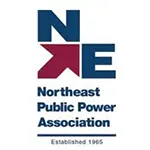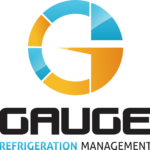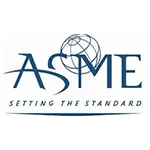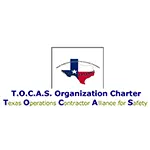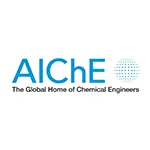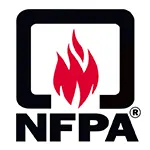Let us help you make sense of PSM / RMP!
My friend Brian Chapin will be offering an open-enrollment PSM/RMP class in Burleson, Texas, July 8th to 11th, 2025. Brian is an absolute pro in NH3 Refrigeration Process Safety. Anyone who attends will also get a FREE membership to SAFTENG. You can get more information on the class with this link.
CLICK HERE to Renew your Membership
CLICK HERE for a NEW Membership
CLICK HERE to see eligibility requirements for FREE Membership
If you have any questions, please contact m
SAFTENG has:
- Over 18,000 categorized unsafe acts/conditions and accident/injury photos
- Over 1,500 ppt's & doc's in the SAFTENG Library
- Over 4,000 Technical Articles on Process Safety, Emergency Response & OSH topics
- Over 450 videos (those not allowed on YouTube Channel)
Many THANKS to my NEW Members and those who CONTINUE to support SAFTENG:









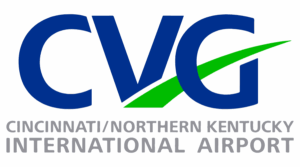


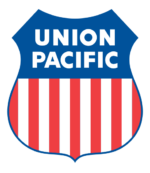

September 10, 2010
Mobile Equipment Accidents #7 This page was last updated on 05/06/2010 UPDATE Firms fined over forklift accidents Aug 29 2003 By Elwyn Roberts TWO North Wales firms yesterday ended up with bills of nearly £20,000 for injuries to workers caused by forklift truck accidents. One woman had a broken leg, while in a separate case a worker escaped with his life after being crushed by a truck. In both...
Read More
September 10, 2010
Mobile Equipment Accidents #6 This page was last updated on 05/06/2010 UPDATE Worker dies after backhoe accident Thursday, May 22, 2003 By ASHANTI M. ALVAREZ STAFF WRITER WEST PATERSON – A construction worker accidentally run over by a backhoe on a work site this week has died, police said. Juan Pupo, 53, of Paterson died at St. Joseph’s Regional Medical Center on Tuesday,...
Read More
September 10, 2010
Mobile Equipment Accidents #5 This page was last updated on 05/06/2010 Worker has leg crushed by steel Jan 25, 2003, 3:15pm A worker was flown to hospital with serious leg injuries after he was crushed under a steel coil weighing 200kgs. Wayne Miles, aged 31, was involved in the accident at Steel Processing Midland Ltd in Chasetown, Burntwood, at 12.15pm yesterday. Paramedics arrived on the Chasewater...
Read More
September 10, 2010
Mobile Equipment Accidents #4 This page was last updated on 05/06/2010 Excavator overturns, injures Waterville man By AMY CALDER, Staff Writer Blethen Maine Newspapers Inc. WINSLOW — A Waterville man clearing brush was injured Thursday when an excavator driven by another man flipped on its side near the Sebasticook River and the bucket struck him. Nick Mansfield, 19, was taken by ambulance...
Read More
September 10, 2010
Mobile Equipment Accidents #3 This page was last updated on 05/06/2010 Dump truck falls into ravine; driver suffers injuries The Baltimore Sun A Taneytown man was in serious but stable condition yesterday at Maryland Shock Trauma Center after the dump truck he was driving plunged into a ravine near Anne Arundel Medical Center’s Sajak Pavilion in Annapolis. The man, 41, suffered head,...
Read More
September 10, 2010
Mobile Equipment Accidents #2 This page was last updated on 05/06/2010 Cement truck tips; driver unhurt St. Joseph News-Press St. Joseph police and fire officials responded to Heartland Regional Medical Center Wednesday afternoon when a cement truck tipped over in a construction area. Officer Henry Pena said Timothy A. Stone, 21, was driving the cement truck for Herzog Contracting Corp. The accident...
Read More
September 10, 2010
Mobile Equipment Accidents #1 This page was last updated on 05/06/2010 N. Smithfield man, 38, dead after apparent accident in yard NORTH SMITHFIELD — A man appears to have been fatally injured yesterday operating a backhoe in the back yard of his house at 903 Rocky Hill Rd. The man, who the police said was 38, was taken by rescue to North Smithfield High School, where he was to be...
Read More
September 10, 2010
Mobile Equipment Accidents
OSHA’s Industrial Truck Accident Summaries
Mobile Equipment Accidents #1
Mobile Equipment Accidents #2
Mobile Equipment Accidents #3
Mobile Equipment Accidents #4
Mobile Equipment Accidents #5
Mobile Equipment Accidents #6
Mobile Equipment Accidents #7
Mobile Equipment Accidents #8 (most recent accidents)
Read More
September 9, 2010
LOTO Accidents #6 This page was last updated on 05/06/2010 LOCK IT OUT!!! Santa Maria Man Killed in Industrial Accident (a man is dead after a tragic industrial accident – incident happened at an oil company – co-workers of the victim say he was a single father of an 8-year-old child and had worked for the company for several years – officers from the County Sheriff’s Department...
Read More
September 9, 2010
LOTO Accidents #5 This page was last updated on 05/06/2010 Man crushed by baler; Recycling center employee flown to San Jose trauma unit By KEVIN HOWE A worker at a Monterey recycling center was taken by helicopter to San Jose after his chest was crushed in a baling machine Friday morning. Juan Ortega, 27, was flown by Cal-Star helicopter to San Jose Medical Center’s trauma unit shortly before...
Read More
September 9, 2010
LOTO Accidents #4 This page was last updated on 05/06/2010 Landscaper Killed After Legs Get Shredded In Wood Chipper ALLENHURST, N.J. — A landscaper who kicked a tree branch to force it into a wood chipper was fatally injured when his legs got pulled into the shredder. Monmouth County authorities identified the man as Rigoberto Martinez, 20, of Long Branch, an employee of MJR Tree Service in...
Read More
September 9, 2010
LOTO Accidents #3 This page was last updated on 05/06/2010 UPDATE Injured Owens Corning worker released from hospital By Jonathan Athens Advocate Reporter NEWARK — Federal inspectors are investigating Owens Corning in the wake of a mishap that cost a 48-year-old Newark man his right arm. Thomas Brunner was discharged Wednesday from Grant Medical Center in Columbus, four days after he was injured...
Read More







